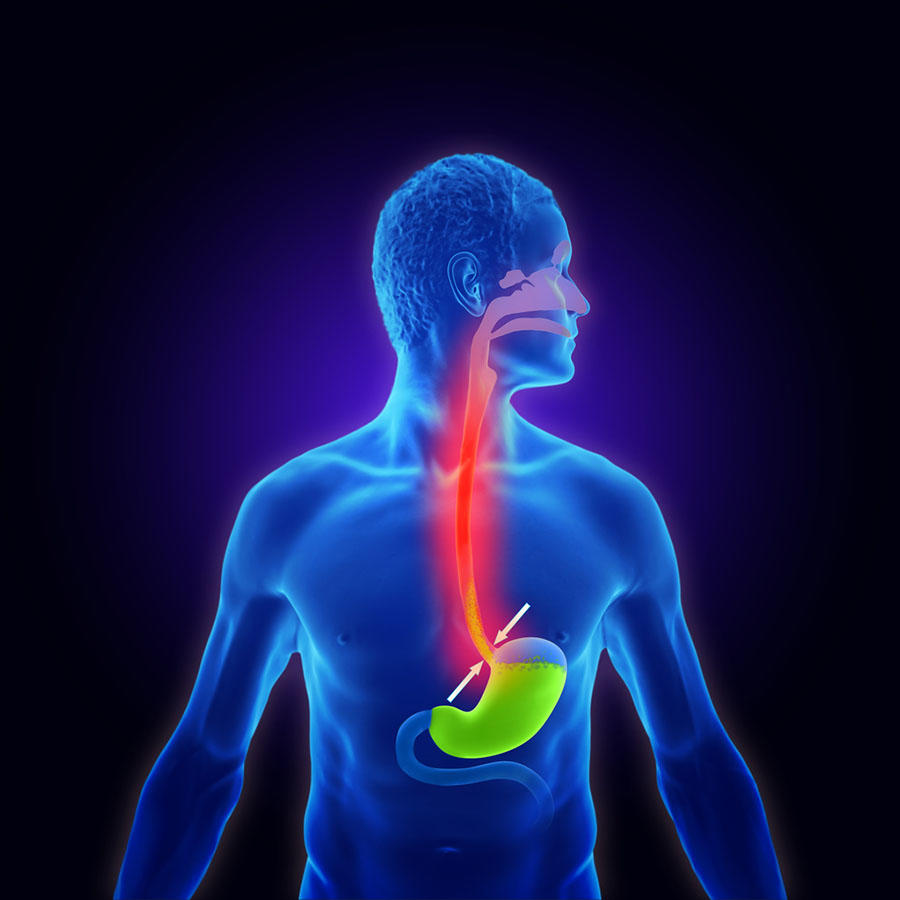Acid Reflux Disease Associated with Increased Risk of Esophageal and Laryngeal Cancers
, by DCEG Staff
Using data from the NIH-AARP Diet and Health Study, Christian C. Abnet, Ph.D. M.P.H., Chief of the Metabolic Epidemiology Branch, and colleagues, found that acid reflux disease was associated with a two-fold increased risk of esophageal and laryngeal squamous cell carcinomas. These findings were published in Cancer on February 22, 2021.
Gastroesophageal reflux disease (GERD)—caused when stomach acid flows back up into the esophagus— affects approximately 20 percent of U.S. adults. While previous studies have established GERD as a risk factor for esophageal adenocarcinoma, the most common type of esophageal cancer in the United States, few studies have tested for associations with esophageal or laryngeal squamous cell carcinomas, which are more common worldwide.
The results of this study illuminate the association of GERD and risk of laryngeal and esophageal squamous cell carcinomas. While GERD symptoms can be alleviated with lifestyle modifications, drugs, and surgery, it is unclear whether those interventions lower cancer risk. Future studies are needed to replicate these findings and to establish GERD as a risk factor for these cancers and other diseases. Understanding the causes of esophageal and laryngeal cancers, will present opportunities for cancer prevention.
Reference
Wang, S-M et al. Gastroesophageal reflux disease: A risk factor for laryngeal squamous cell carcinoma and esophageal squamous cell carcinoma in the NIH-AARP Diet and Health Study cohort. Cancer. February 2021. DOI: 10.1002/cncr.33427. [Epub ahead of print].
